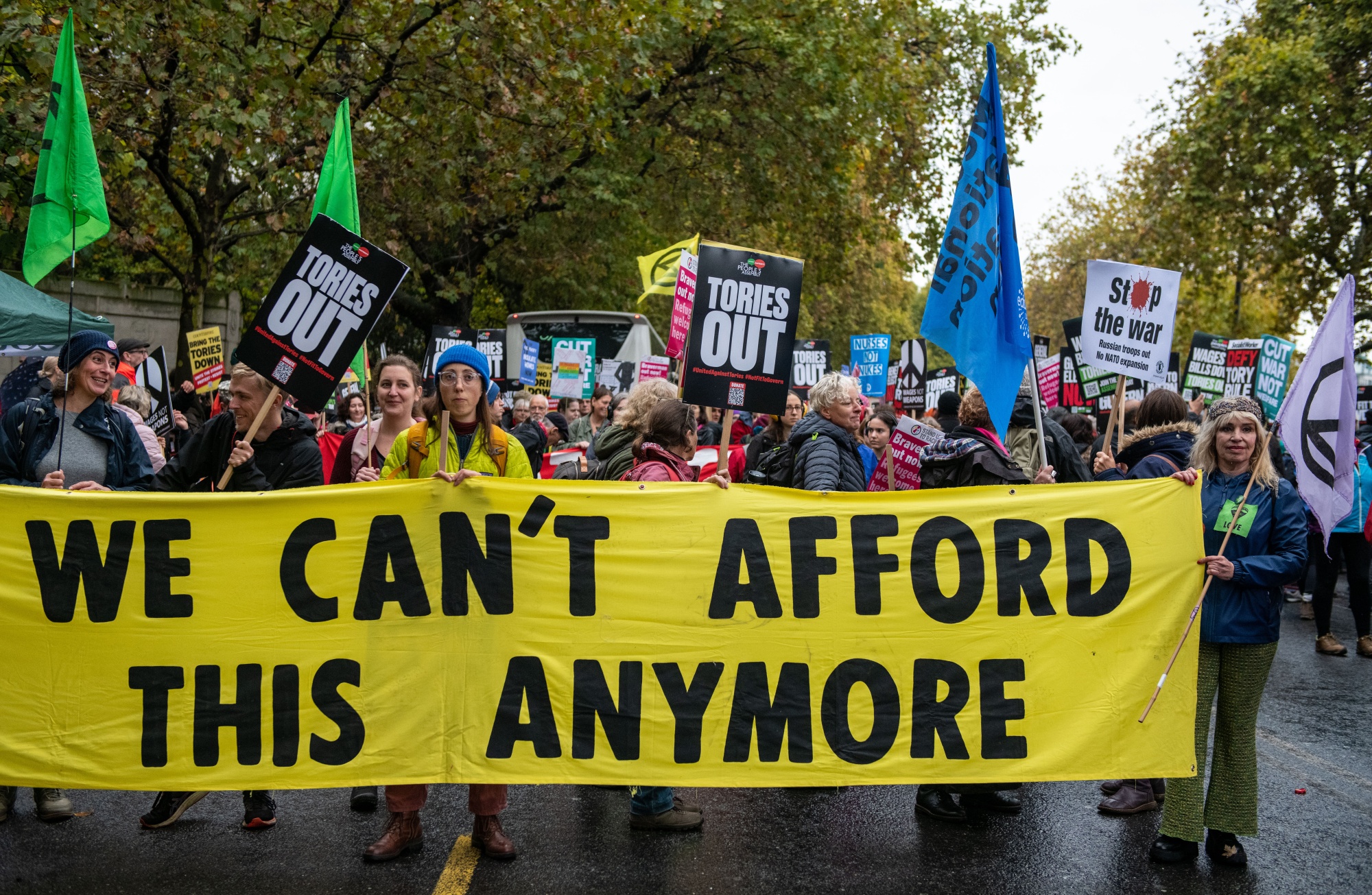ALWAGHT- Prime Minister Rishi Sunak has thus far resisted pressure for early elections in the UK. However, the country's economic conditions, strained by financial assistance for the Ukraine conflict and assertive stances in the Gaza war, have diminished support for both him and his affiliated party.
Recent statistics from the UK's Office for National Statistics, published on March 28, indicate that the British economy slipped into a recession towards the end of 2023. This development significantly undermines the credibility of the governing Conservative Party just ahead of nationwide elections.
Fresh data suggests that the energy price crisis has resulted in a rise in absolute poverty rates in Britain, reaching the highest level in three decades. During the period of 2022-2023, this number surged to 12 million individuals, marking an increase of 600,000 people or 0.78 percent compared to the preceding period.
The UK's Department for Work and Pensions, in an official report, has announced an increase in the number of children living in poverty within the country. According to the ministry's statistics, 4.33 million children in the UK reside in low-income households. This surpasses the previous highest recorded figure for the 12 months ending in March 2020, which stood at 4.28 million children. In March 2022, this number was approximately 4.22 million. These statistics clearly highlight the government's failure to safeguard vulnerable individuals amidst the escalating crisis of living expenses.
In the meantime, The Observer, a weekly magazine, disclosed that child poverty in the UK has escalated to alarming levels, prompting schools to step in and offer housing, bathing, and laundry facilities for their students. The publication noted, "School administrators indicate that they are not only addressing hunger but are also confronting the growing number of children living in inadequate housing conditions or experiencing discomfort due to cold weather. They caution that poverty is leading to behavioral challenges, persistent absenteeism, and mental health concerns among students."
United Nations rapporteur concerned about the issue of Human Rights in the UK
Reacting to this scenario, Olivier De Schutter, the UN's special rapporteur on extreme poverty and human rights, cautioned the UK government against breaching international regulations concerning poverty reduction within the nation. He advocated for an augmentation of welfare support for the populace of the UK.
Emphasizing the concerning extent of poverty in the UK and the government's disregard for international laws on this matter, De Schutter urged UK officials to bolster welfare support. Drawing a parallel, he compared the UK's welfare system to a "leaking bucket" and, during an interview with The Guardian, referenced a report by former UN representative Philip Alston regarding the "systematic impoverishment of a substantial portion of the British population" under the Conservative government, stating, "The situation has deteriorated."
Conservatives severely failing
The current circumstances have intensified tensions within the governing Conservative Party as they approach elections, with efforts underway to replace Prime Minister Rishi Sunak. Most polls suggest a lead for the opposition Labour Party led by Keir Starmer, often dubbed by the British media as the "prime minister in waiting." According to the right-wing newspaper Daily Mail, there have been reports of clandestine meetings among representatives of conservative factions, discussing the potential removal of Sunak and the installation of Penny Mordaunt.
The UK general public in opposition to Rishi Sunak’s policies
The hardline stances adopted by the current Prime Minister of Britain concerning refugees, the crackdown on Palestinian supporters in combating anti-Semitism, and collaboration with the US in actions pertaining to Gaza have resulted in the English electorate harboring a pessimistic perception of Rishi Sunak and his affiliated party.
The Conservative Party faces slim prospects in the forthcoming elections
In the UK, general elections to select Members of Parliament occur every five years, typically taking place in the spring or autumn. Prime Minister Sunak previously stated his intention to hold nationwide elections in the latter half of 2024. According to law, he must hold elections no later than January 28, 2025.
The exact date of the elections has not yet been announced, and it seems unlikely that this will be determined within the next one or two months. Sunak dismissed speculation about early elections in late March of the previous year and confirmed that the event would proceed in the second half of 2024 as planned. However, the Labour Party insists on holding elections at the earliest opportunity. Nevertheless, the citizens of the UK will head to the polls this year to determine the political trajectory of their nation. It appears evident from most polls that the ruling Conservative Party faces slim prospects in the upcoming elections.



























